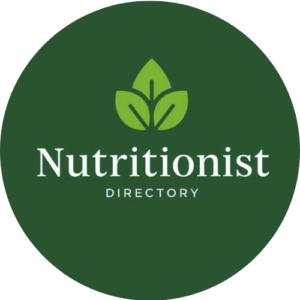Introduction
Anemia, a condition marked by a deficiency of red blood cells or hemoglobin, affects millions of people worldwide. While there are various types of anemia, iron-deficiency anemia is the most common. This condition can lead to symptoms like fatigue, weakness, and shortness of breath, significantly impacting quality of life. Fortunately, nutrition plays a pivotal role in the prevention and management of anemia. In this article, we’ll explore the best dietary strategies to combat anemia and promote overall health.
Understanding Anemia and Its Nutritional Causes
Anemia occurs when the body doesn’t have enough healthy red blood cells to carry adequate oxygen to the tissues. The most common nutritional causes of anemia include:
- Iron Deficiency: Iron is a crucial component of hemoglobin. Without sufficient iron, the body cannot produce enough healthy red blood cells, leading to iron-deficiency anemia.
- Vitamin B12 Deficiency: Vitamin B12 is essential for red blood cell production. A lack of this vitamin can lead to pernicious anemia.
- Folate Deficiency: Folate, or vitamin B9, is vital for the formation of red and white blood cells. Inadequate intake can result in folate-deficiency anemia.
Top Nutrients to Prevent and Manage Anemia
- Iron-Rich Foods
- Heme Iron: Found in animal products like red meat, poultry, and fish, heme iron is easily absorbed by the body.
- Non-Heme Iron: Present in plant-based foods like lentils, beans, tofu, and spinach, non-heme iron is less readily absorbed but can be enhanced with certain dietary strategies.
- Vitamin C
- Vitamin C significantly enhances the absorption of non-heme iron. Including foods rich in vitamin C, such as oranges, strawberries, bell peppers, and broccoli, can help improve iron absorption.
- Vitamin B12
- Essential for the production of red blood cells, vitamin B12 is found primarily in animal products like meat, eggs, and dairy. Vegetarians and vegans may need to consider fortified foods or supplements.
- Folate (Vitamin B9)
- Leafy green vegetables, citrus fruits, beans, and fortified grains are excellent sources of folate. This vitamin is crucial for DNA synthesis and red blood cell production.
- Copper and Zinc
- Both copper and zinc play supporting roles in iron metabolism. Copper-rich foods include shellfish, nuts, seeds, and whole grains, while zinc can be found in meat, dairy products, and legumes.
Dietary Strategies for Better Iron Absorption
- Pair Iron-Rich Foods with Vitamin C: Consuming non-heme iron sources with vitamin C-rich foods can enhance iron absorption. For instance, adding lemon juice to spinach or having a fruit salad with beans can boost iron uptake.
- Avoid Iron Inhibitors: Certain foods and beverages can inhibit iron absorption. These include coffee, tea, and foods high in calcium. It’s best to consume these separately from iron-rich meals.
- Cook with Cast Iron: Cooking acidic foods like tomatoes in cast iron cookware can increase the iron content of your meals.
Sample Meal Plan to Boost Iron Intake
- Breakfast: Fortified cereal with a glass of orange juice and a side of mixed berries.
- Lunch: Spinach and lentil salad topped with grilled chicken, cherry tomatoes, and a squeeze of lemon.
- Snack: A handful of nuts and seeds with a piece of fruit.
- Dinner: Baked salmon with quinoa, steamed broccoli, and roasted sweet potatoes.
When to Consider Supplements
In some cases, dietary changes alone may not be sufficient to address anemia, especially if you have a diagnosed deficiency or absorption issues. Iron supplements, vitamin B12 injections, or folic acid supplements might be necessary, but these should be taken under the guidance of a healthcare professional to avoid potential side effects or interactions.
Conclusion
Anemia is a manageable condition, especially when addressed through proper nutrition. By incorporating iron-rich foods, supporting nutrients, and strategic eating habits into your diet, you can significantly reduce your risk of anemia or manage its symptoms effectively. Always consult with a healthcare provider before making significant changes to your diet or starting supplements to ensure they align with your individual health needs.
Find a Nutritionist Near You
Start your journey to optimal health

We write rarely, but only the best content.
Please check your email for a confirmation email.
Only once you've confirmed your email will you be subscribed to our newsletter.
